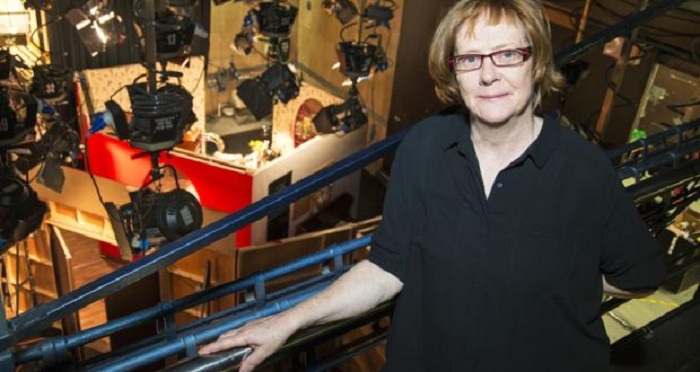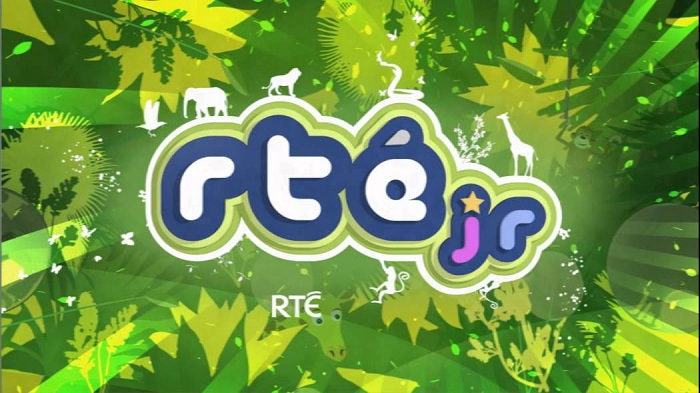GAFX 2019 played host to a spate of illustrious names in the AVGC industry; ranging from top developers to producers, writers, editors, digital experts, designers and researchers. The striking part of it is that creative specialist Sheila De Courcy, who was an active part of the sessions and panel discussions at the summit, has donned almost all of the aforementioned hats in her lifetime.
Her sessions involved Topic: Deals with Wheels – Global Productions, Looking for Indian Partners and Around the World of GAFX. Coursy spoke candidly to AnimationXpress at the conference, delineating the quintessence of Kids’ animation ecosystem and her zeal for helping attendees to keep abreast of a variety of international partnership opportunities and key elements in kids’ content in the entertainment industry.

Currently a member of film, journalism and music boards and working as a consultant, facilitator and producer, she spent over three decades in RTE where she was responsible for, amongst other things, developing a teen soap and rebranding RTE’s content for children and teens. As group head of young people’s programmes, she established the award-winning RTEjr, a multi-platform brand for children.
Her Journey
Speaking about her journey as a creative specialist, she shared, “I chose creative specialist as a title because when I looked at the thread that ran through my experience since the youngest age, whether in music, film, TV, audio, writing, illustration or even sewing, it has always been the development of ideas and enabling their communication with people that excited me. Working out how to turn something that might start as an abstract challenge, a deeply held passion or conviction, a response to a perceived need or a particularly interesting object, place or character, for example, into an engaging form or shape that will be enjoyed by the target audience and contribute to the world we share is a rewarding kind of problem-solving.”
“Kids tend to be very clear thinkers. They know what they like, they understand magic and fantasy, they have no axe to grind, they don’t bother with the politics of a situation.”
Further elaborating her past experiences, she added, “Over the years I have been responsible for all kinds of projects, amongst them developing cross-platform music and drama masterclasses for small children, creating a primetime TV arts magazine series in the Irish language (which was a particular challenge since Irish is only spoken by a minority of viewers), setting up a TV/Radio/online channel for youngsters, creating a TV ‘soap opera’ for teenagers and designing and producing a year-long multidisciplinary 40th anniversary celebration for a public broadcaster. But the scale is irrelevant, it’s spirit, passion and commitment that attract me, and a desire to make the world a better place on whatever scale”

Discussing as to what drew her towards kids’ genre as opposed to other age-groups, she explained, ”Kids tend to be very clear thinkers. They know what they like, they understand magic and fantasy, they have no axe to grind, they don’t bother with the politics of a situation. Early in my career when I worked in museums, galleries and libraries, it was a tonic to hear the honesty of kids in response to stories and paintings and objects. Kids are direct, you always know where you stand with them which is something I appreciate.”
Enlarging further on her inclination towards kids’ animation ecosystem, she appended, “,In my mid-twenties I moved to work in broadcasting, producing and directing documentary, drama, current affairs, and entertainment targeted at adults or a family audience and while this provided a great opportunity to learn the nuts and bolts of broadcasting and content creation, as well the potential to reach very large audiences, it was also a time when TV and radio was growing increasingly commercial and this was something that posed its own challenges and constraints. Creating kids’ content provided and continues to provide the best opportunities for experimentation, creativity, the exploration of ideas and collaboration with an open-minded audience of unfettered fellow adventurers.”
Good content for kids’ animation
Upon being asked as to what according to her is the good content for Kids’ animation, she answered after some thought, “There are all the usual characteristics such as strong stories and engaging characters set in a world that is clever, inventive, visually and aurally striking, textured, respectful, engaging and warm. But I think the most important quality good content has is an understanding of the audience it is targeting.
“The world in which children are growing up has changed and characteristics of children never change. That is the sky, the rest is detail.”
Diversity in a kids’ TV show
According to her, there are several ways to ensure diversity in a kids’ TV show; ranging from applying mathematics and grid plans to narrative and writing character outlines before assigning specific characteristics including gender and background to them. She further expounded on the subject of diversity in a kids’ show, “Perhaps the best way, however, is to interrogate the concept overview, longer story arcs and characters to ensure they are the richest, most engaging, most layered they can be, and to continue this process right through to each script, visual design, voice-casting, soundtrack …At every stage ask as to whether we are getting the most that we can from this?”
Her advice to young aspirants
To those who wish to become writer, she pressed that one should read as much as possible, watch as much as one can, stay informed about local and global culture and attend talks or seminars where possible or watch online to learn from experienced writers.
On the same tangent, she further advised, “If possible find a position in a company or assisting a writer which will give you a chance to observe them at work and maybe to be present at meetings where you can learn how things are done. Then start writing samples, identify a company or writer that interests you and approach them with your portfolio.”
GAFX 2019 experience

Speaking about her GAFX 2019 experience, she shared enthusiastically, “Oh, it was such a joy to be in the midst of people who love what they do. Every corner I turned there seemed to be people engaged in the creative process in one way or another – from sculpting and drawing to discussing projects, asking questions and working on designs. The venue was buzzing and I got a real sense of the talent, commitment and opportunity which I found personally very uplifting. And I must say the final session was the best wrap up party I have ever been to!”
Creating an IP for kids across the world.
In her opinion, ‘The world in which children are growing up has changed and characteristics of children never change. That is the sky, the rest is detail.”
Shedding light on how one should go about creating an IP that would resonate with the world audiences (kids), she said, “The first is to work only with ideas that you believe in. As the project develops be open to discussion and feedback and incorporate it into your project as appropriate, but never lose sight of the core idea, of what you love about the project. Your passion will see you through the bumpy stages and it will shine out when you go looking for partners. Then know your target audience inside out – their age, developmental stage, interests, likes and dislikes, taste in audio and visuals, what makes them laugh, what might upset them, etc. This understanding will help you shape the idea into a format and concept that has real potential to engage them”
We were thrilled to learn the nuances and key elements of IP creation from veterans like Courcy. Summits like GAFX are fundamental to the growth of the M & E space especially when it comes to nourishing the ecosystem with international inputs.
